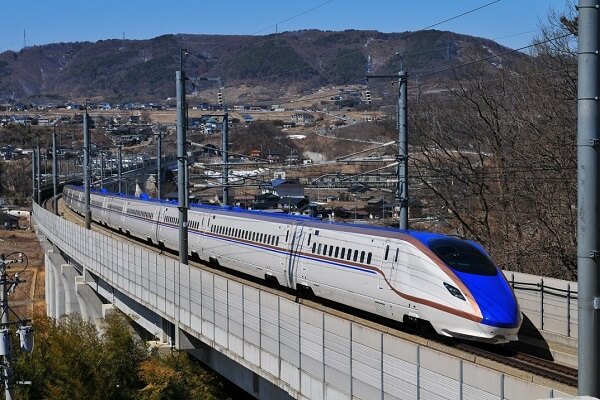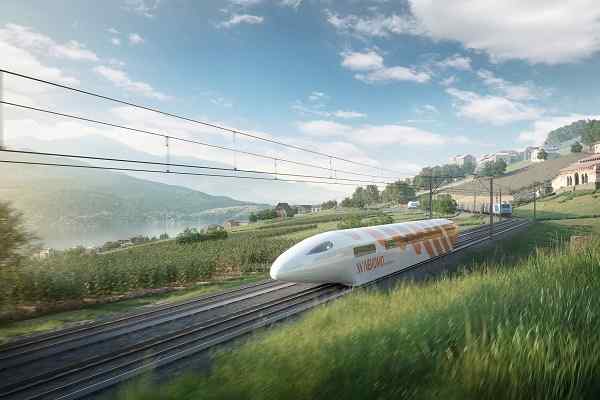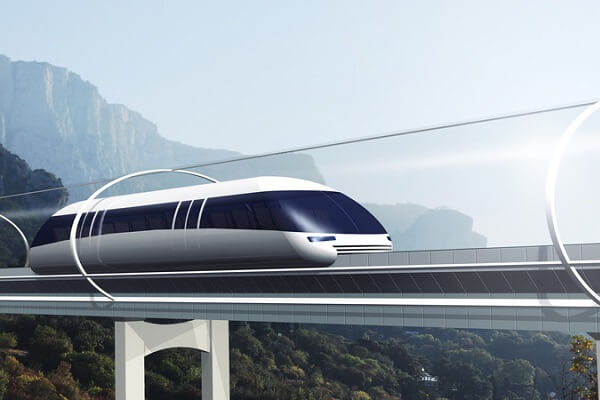 Nafisah Aslam-Zainudeen: Inspiring the Next Generation of Female Engineers
Nafisah Aslam-Zainudeen: Inspiring the Next Generation of Female Engineers DRA-DMRC JV awarded major contract for redevelopment of Ahmedabad Railway Station
DRA-DMRC JV awarded major contract for redevelopment of Ahmedabad Railway Station Revolutionizing Transportation: Hyperloop Technology in Saudi Arabia
Revolutionizing Transportation: Hyperloop Technology in Saudi Arabia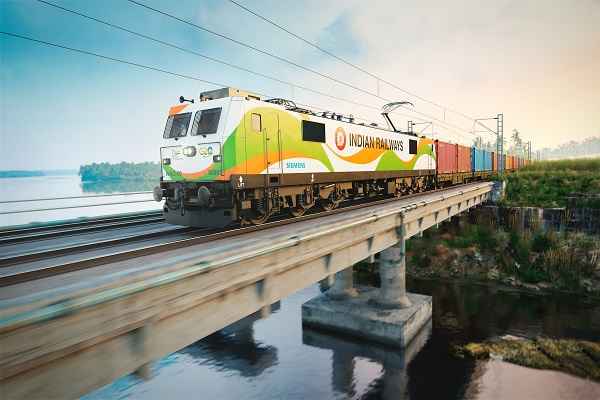 India is not just a market, it is becoming a beacon of hope for the future: Siemens AG
India is not just a market, it is becoming a beacon of hope for the future: Siemens AGSATEBA acquires Rail Business of De Bonte Group in Belgium
 Regent to launch High-Speed Seagliders to transform coastal transportation in UAE
Regent to launch High-Speed Seagliders to transform coastal transportation in UAE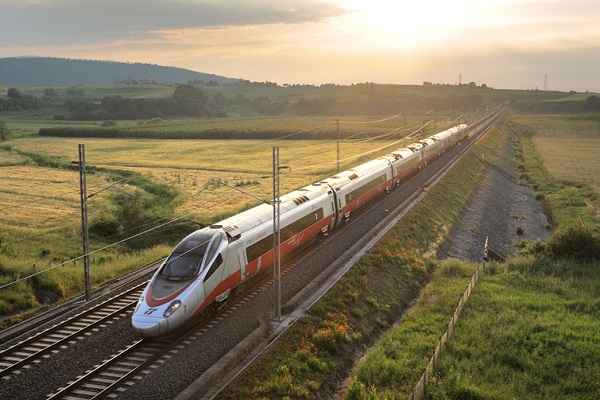 California commences construction on $12bn Los Angeles - Vegas High Speed Rail Project
California commences construction on $12bn Los Angeles - Vegas High Speed Rail Project Kochi Water Metro floats tender to procure 15 more electric-hybrid ferries
Kochi Water Metro floats tender to procure 15 more electric-hybrid ferries Siemens Mobility-Hassan Allam Construction JV Sign Contract for UAE – Oman Railway Link
Siemens Mobility-Hassan Allam Construction JV Sign Contract for UAE – Oman Railway Link What is better public transport option for Bengaluru - RRTS or Metro Expansion?
What is better public transport option for Bengaluru - RRTS or Metro Expansion?
The Role of Technology in Transforming Urban Mobility

Urban mobility plays a crucial role in modern cities, and advancements in technology have greatly influenced its transformation. This article explores the impact of technology on various aspects of urban transportation. It delves into enhanced connectivity, smart traffic management, electric and autonomous vehicles, shared mobility, data-driven planning, and decision-making.
These advancements align with the focus of Urban Transport News, a website dedicated to providing updates on urban transport developments.
Enhanced Connectivity and Communication
Technology has revolutionized connectivity in urban mobility. Real-time information systems and mobile applications provide commuters with up-to-date travel information, allowing them to plan their journeys more efficiently.
Seamless communication networks integrate different modes of transportation, facilitating seamless transfers and improving overall mobility. Furthermore, the Internet of Things (IoT) has enabled smart infrastructure and connected vehicles, enhancing the coordination and efficiency of urban transportation systems.
Smart Traffic Management
Technological innovations like intelligent traffic management systems and adaptive signal control have optimized urban traffic flow. AI-powered algorithms and machine learning analyze traffic patterns, enabling dynamic signal timings.
Cities worldwide have successfully implemented smart traffic management systems, reducing congestion, minimizing travel times, and improving traffic efficiency. Additionally, advanced analytics and sensors provide valuable insights for traffic planning and management, ensuring better traffic distribution and reducing bottlenecks.
Electric and Autonomous Vehicles
The rise of electric vehicles (EVs) has positively impacted urban mobility and sustainability. EV charging infrastructure, including the adoption of EV charging networks, supports the transition to electric mobility. Governments and businesses are investing in EV charging networks to encourage the adoption of eco-friendly transportation.
Furthermore, autonomous vehicles (AVs) hold great potential for transforming urban transportation, offering increased safety, reduced congestion, and enhanced efficiency. AVs can optimize routes, reduce accidents, and provide accessible transportation solutions for all.
Shared Mobility and Ride-Hailing Services
Shared mobility platforms have transformed urban transport by reducing reliance on private vehicles. These platforms utilize innovative technology to offer convenient ride-hailing services, carpooling, and bike-sharing programs, providing flexible, cost-effective, and eco-friendly alternatives.
By expanding mobility options and minimizing traffic congestion and environmental impact, these services greatly contribute to improving urban mobility. Digital platforms and mobile applications seamlessly connect users with available modes of shared transportation, ensuring a smooth and user-friendly experience. Just like the accessibility and convenience provided by reputable online casinos in India , these platforms make urban mobility more accessible and convenient for the population. The India casino (https://www.indiacasino.io/) helps you to compare online casinos in India. Here you can find the best online casinos and bonuses to boost your pockets with some extra cash, while reading world class reviews about these companies.
Data-driven Planning and Decision-making
Technology facilitates data collection and analysis, empowering data-driven urban transport planning. Big data analytics and predictive modelling optimize route planning, infrastructure development, and resource allocation. By leveraging data, cities can make informed decisions and enhance urban mobility outcomes.
Data-driven insights help identify transportation demand patterns and areas for infrastructure improvement and enable efficient allocation of resources. Additionally, advanced modelling techniques enable simulations and scenario planning to optimize urban transportation systems.
Technology continues to drive the transformation of urban mobility. Enhanced connectivity, smart traffic management, electric and autonomous vehicles, shared mobility, and data-driven decision-making reshape the way people move in cities. Urban Transport News remains committed to providing updates on these technological advancements that shape the future of urban mobility.





